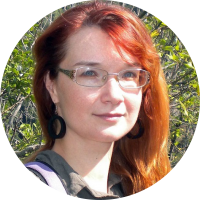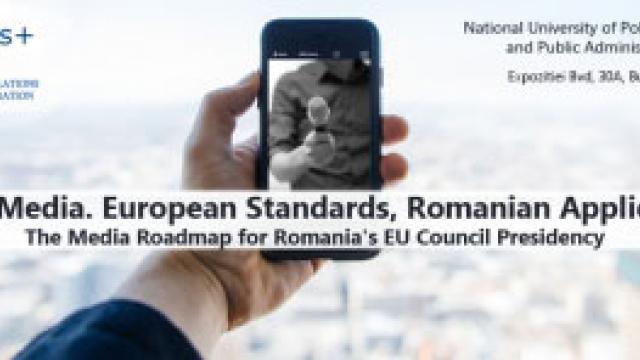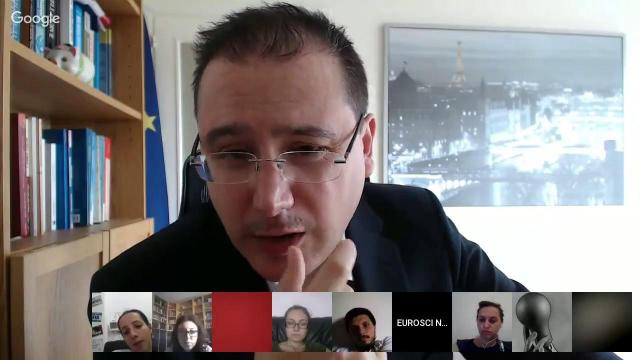Jean Monnet Module: EU*Ro MEDIA - European standards, Romanian application: the media roadmap for Romania’s 2019 EU Council Presidency
Primary tabs

This Jean Monnet module is designed to cater for the needs of a target group comprised of Romanian media professionals, opinion leaders and opinion formers that work in a field unrelated to European studies, but which is influenced by EU-related aspects, thus prompting them to receive high-quality training in tackling European Affairs in an accurate and in-depth manner.
In 2019, Romania will hold the Presidency of the European Union Council, a moment when it will be faced both with great challenges in agenda setting, and also opportunities to enhance its visibility on the European arena and upload its political input on the supranational level. The national media can, therefore, pave the way for Romania's successful completion of this high-level political and diplomatic task by promoting and stimulating the Europeanization of the public sphere, which is currently partly disconnected from the developments taking place at the European level.
Throughout the three year duration of the project, the action will focus on: equipping the target group with knowledge of European Union subjects relevant for their academic and professional lives; enhancing the target group’s professional expertise by fostering the development of a set of skills and notions that will help them have a better understanding of the events and influences at the supranational level which impact upon Romania as a Member State; improving the target group’s civic skills through the use of instruments provided by the teaching staff in order to master their role as shapers of public opinion and actors influencing the public agenda; improve the quality of professional trainings on EU subjects.
The module offers four intensive tailor-made courses, complementing the target group’s previous academic experience with EU Affairs-related content, following a multidisciplinary approach. Meanwhile, the teaching staff’s expertise will help at gradually building the understanding of the themes presented in the syllabus of each course from an overall perspective to an in-depth angle of analysis. The students will be provided with didactic materials, such as a course support, relevant academic papers and brochures. Additionally, an OERDS (Open Educational Resources Digital Space) platform will be available for the registered module attendees; they will be able to consolidate and assimilate the acquired information, through simulations on the functioning of EU actors and decision-making process and self-paced, but focused interactive webinars. The participants will also be able to initiate discussions, debates or address questions on the aforementioned platform.
The project has an additional academic valued inherent in its research component which will provide the ground for one academic publication regarding the Europeanization of the media in several Eastern and Western Member States, Romania included, hence adding to the development of the European Studies field and encouraging European integration.
The main output is represented by the training of a group of people with a position in the Romanian media (young opinion leaders, formers and journalists), able upon completion to take part in the Europeanization of the public sphere through their work, while the main outcome will be aimed at the public sphere, an important group that must better understand the direct and indirect implications of EU’s impact on the member states. Given the fact that during the first half of 2019 the Presidency of the Council of the European Union will be held by Romania, the public sphere will have the ability to influence the agenda proposed by the country in the aforementioned context.









